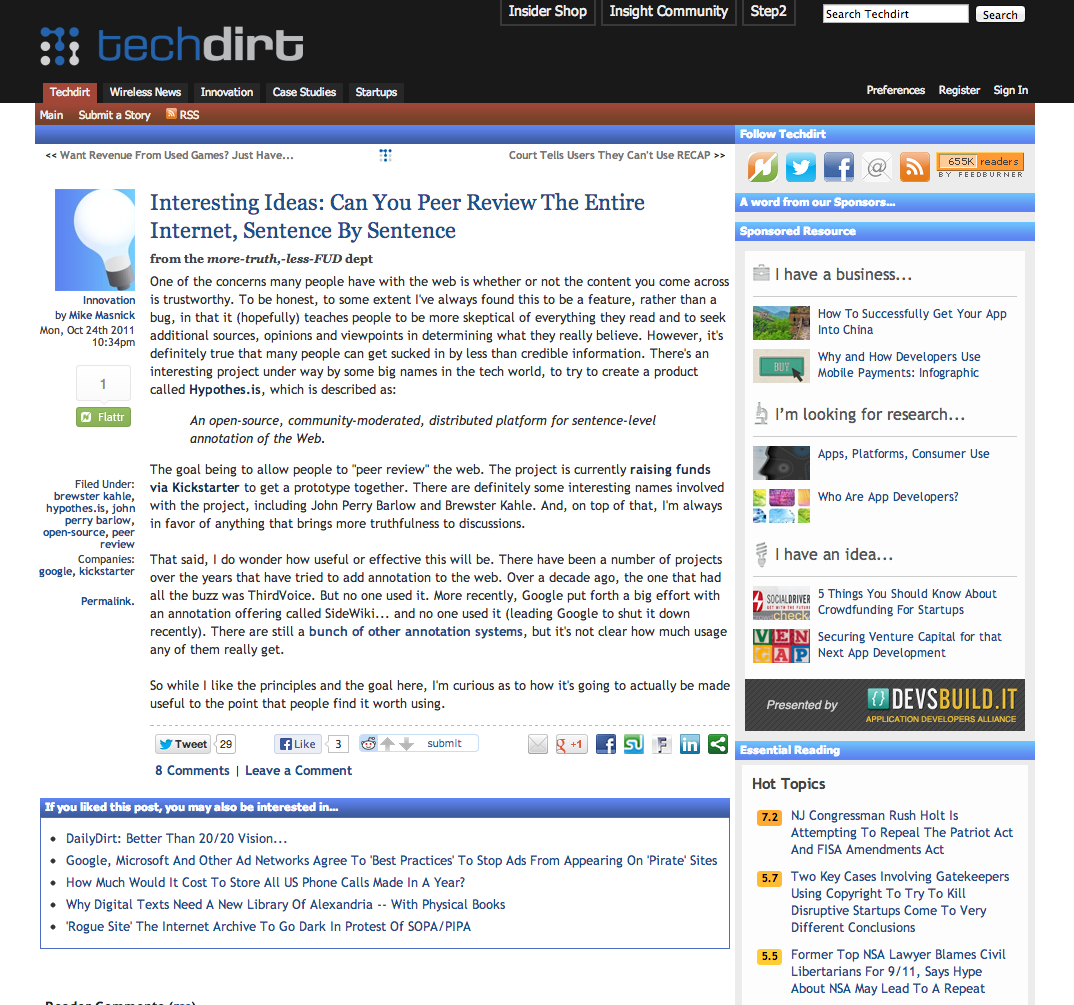Press
Hypothesis in the news.
Read what others are saying about our powerful social annotation solutions. For press inquiries, please contact us.
Read Write Web
2 March, 2012
There are two fundamental, related cultural problems with the Web that Hypothes.is wants to address: identity and reputation. Reputation is the main problem, but you can't approach it without fixing identity
Researchity
1 November, 2011
But I'm not sure about the direction of its foundational metaphor: peer review for the internet. It suggests that the future reputation and fact checking system of the internet should be more like academic peer review. But that's the wrong way to look at it. Academic peer review should be more like Hypothes.is.
TechCrunch
31 October, 2011
The Web: never before has there been a medium where it was so easy to find so much information. And never before has so much of it been so wrong. Somebody needs to fact-check the Internet.
Kurzweil Accelerating Intelligence
28 October, 2011
It could be one of the most important innovations on the Internet since the browser. Imagine an open-source, crowd-sourced, community-moderated, distributed platform for sentence-level annotation of the Web...
Techdirt
24 October, 2011
One of the concerns many people have with the web is whether or not the content you come across is trustworthy. To be honest, to some extent I've always found this to be a feature, rather than a bug, in that it (hopefully) teaches people to be more skeptical of everything they read and to seek additional sources, opinions and viewpoints in determining what they really believe. However, it's definitely true that many people can get sucked in by less than credible information.
Forbes
21 October, 2011
I am therefore going to become a very big fan of hypothes.is. Before hypothes.is launched I was chewing over the problem of peer review. Do we get enough peer review in a world of open communications?
Skeptools
21 October, 2011
The Hypothes.is team is approaching it from a broader perspective, beyond that of scientific skepticism. They want to peer review any fact that appears anywhere on the web, on any site.
Read Write Web
20 October, 2011
A team of long-time leaders of the Internet community have come together behind Dan Whaley, one of the forefathers of contemporary search engines, to build a system called Hypothes.is.







